For several years now, when visiting relatives to wish them a happy new year, Mai Phuong has stopped by her grandchildren playing in the yard, asking and playing with them without giving them lucky money.
"Some children are still happy, clinging to my legs and neck. Some are not happy, but I don't care," said the 28-year-old girl in Hai Ba Trung district, Hanoi .
In the past, Mai Phuong always considered red envelopes to be a wish for peace and luck in the new year. However, a few years ago, her 10-year-old nephew tore open the envelope right in front of her and complained that it contained a 50,000 VND bill, so she changed her mind.
"I feel that the custom of giving lucky money today has lost its original beauty. The recipient expects a large amount of money, while the giver is also under pressure, afraid of being judged as stingy and financially weak," Phuong said. She decided not to give lucky money or gifts to anyone, including relatives. Phuong believes that when the value and sincerity sent in the lucky money envelope deviates from its essence, there is no need to keep it.
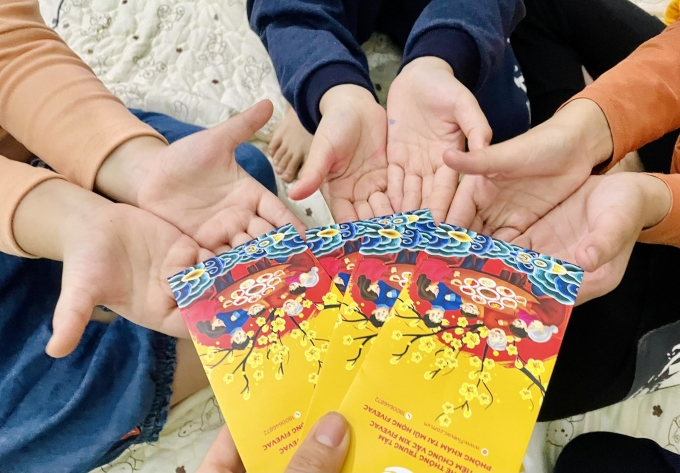
A number of young people decide not to give lucky money because they find it inappropriate and contrary to their inherent nature. Illustration: PD
In Ho Chi Minh City, the Year of the Dragon is the third year Phuong Thao, 32, has not given lucky money. The office worker explains this is due to pressure. Giving less is considered "stingy", but each envelope contains 50,000 VND or more, which she cannot afford because her family has 30 children, not to mention dozens of children of neighbors and friends.
Every time she returns home for Tet, she has to spend 10 million VND on plane tickets and gifts. If she has to pay 2-3 million VND in lucky money, she will have to take out a loan because her monthly salary is 8 million VND. "For the past two years, I haven't even had a Tet bonus," Thao said.
Thao is among the 74% of people who consider giving lucky money a financial pressure when Tet has many expenses in a survey of more than 1,000 readers of VnExpress . Only 26% feel excited and happy with this tradition.
Associate Professor Bui Xuan Dinh, Institute of Ethnology (Vietnam Academy of Social Sciences) said that lucky money originated from the word "loi thi", which means the profit generated in the process of business and trade. Every year, merchants set aside a portion of their profits as lucky money for children. In the past, farmers did not have lucky money. In recent decades, as the economy has developed, the lucky money custom has expanded to many classes of people.
"The principle of lucky money is new money, small denomination," said the culturalist.
However, a beautiful custom has now been distorted, exploited, and even turned into a social evil to the point that some people with limited finances are pressured, not daring to return to their hometowns, or returning but not daring to go to wish them a happy new year.
"It's a small thing, but lucky money is causing big consequences. For example, it creates a mentality of liking money during Tet and valuing money in a group of children; or it's an occasion for rich families to show off their influence and position; it's also a trend of comparing values, creating a bad mentality for children," said Associate Professor Bui Xuan Dinh.
Psychologist Nguyen Thi Minh, a lecturer at the Ho Chi Minh National Academy of Politics (HCMC), said the fear of giving lucky money is understandable because the economy has been growing slowly in recent years, incomes have decreased, and many workers have lost their jobs, making this lucky money a burden. In addition, the fear of being judged and not being able to overcome pressure from public opinion has caused many people to try to increase the value of the money.
"Because of not knowing how to live within one's means and only focusing on self-esteem, many people are forced to spend a lot of money on lucky money, even exceeding their income," said Ms. Minh.
In another survey by VnExpress in 2023, 11% of respondents said they had to spend more than 30% of their average monthly salary on lucky money, 19% spent 10-30% and the group spending less than 10% of their average monthly salary was 70%.
While the value of money in lucky money envelopes is expected to increase, on the contrary, incomes decrease, causing many people to feel shy or avoid meeting relatives and friends. "Or there are young people who choose to face it, still going to wish them a happy new year but not giving lucky money," said Ms. Minh.
Like Phuong Thao, to avoid the expectant eyes of children and fear of being judged by adults, she stayed in her room for the entire 5 days off, avoiding meeting people to "preserve" her small salary and bonus.
As for Mai Phuong, her decision not to give lucky money to children when meeting them caused the young girl to be criticized by adults for being stingy and going against cultural values.
"I always want to maintain the meaningful culture of sending New Year wishes, but if the people around me are changing and the original good meaning is distorted, there is no need to force myself to follow," Phuong said.
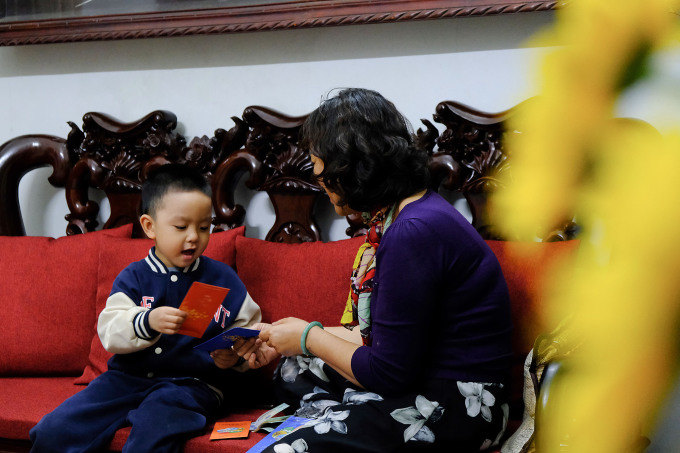
Experts say the value of a red envelope does not lie in the amount of money, but rather in the goodwill and financial capacity of the recipient. Illustration: QN
Supporting the young people's decision not to give lucky money, Mr. Dinh said that being pressured or refusing to give lucky money is not entirely correct, because Tet is an opportunity to meet and reunite, not to give lucky money, bribe, or flatter. It does not depend on the amount of money, but on goodwill and good meaning, so you can do it according to your ability.
"Most importantly, parents must remind their children to understand the true nature of lucky money, which is to encourage each other and wish the child good health and success in their studies," said Mr. Dinh.
Phan Duong - Quynh Nguyen
Source




![[Photo] Colorful Mid-Autumn Festival in Hanoi's Old Quarter](https://vphoto.vietnam.vn/thumb/1200x675/vietnam/resource/IMAGE/2025/10/2/08ab35901a8f4a41af7f1ba1ef35380e)





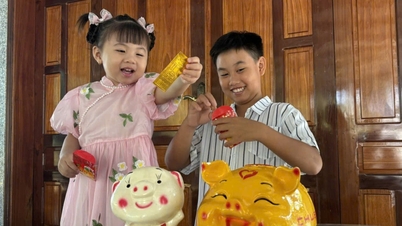



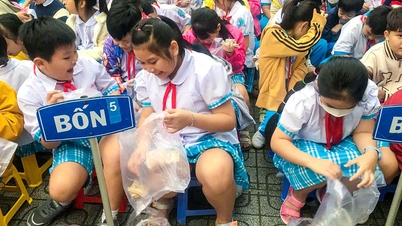
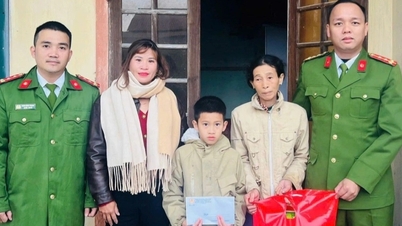




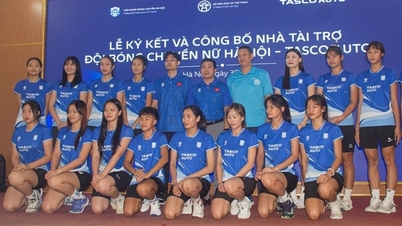






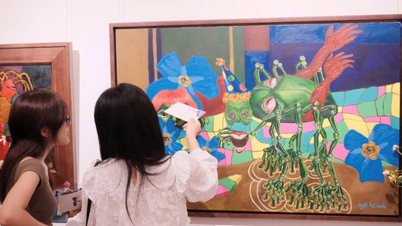











![[Photo] Keep your warehouse safe in all situations](https://vphoto.vietnam.vn/thumb/1200x675/vietnam/resource/IMAGE/2025/10/1/3eb4eceafe68497989865e7faa4e4d0e)






























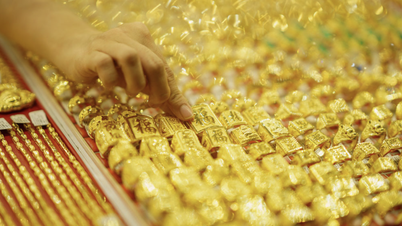




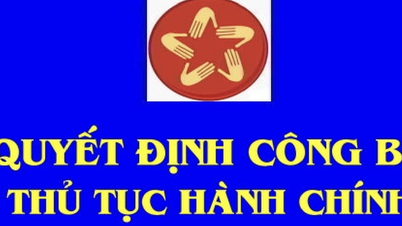
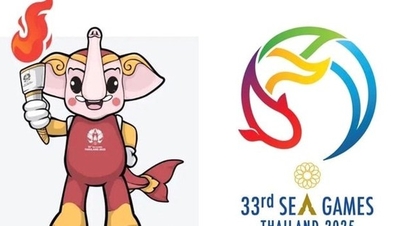







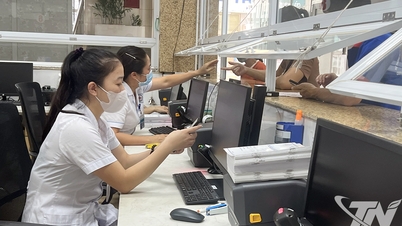

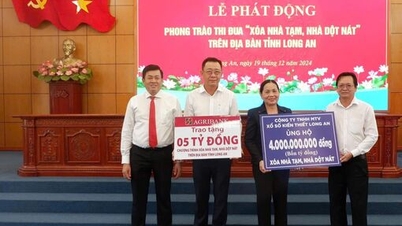

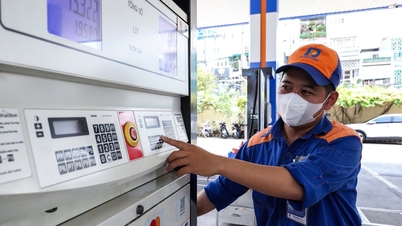














Comment (0)